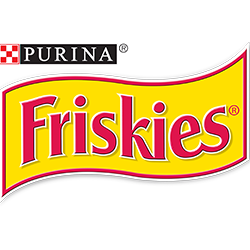
Cat Litter: Why Is It So Important?
Most new cat parents need help selecting a litter tray because it is one of the essential accessories for a cat. Choosing the correct shape and size, a suitable litter, and where to store it are all critical considerations.
Even cat lovers will acknowledge that cats aren't always the easiest pets to care for. They have a habit of dragging their claws across your eyelids to remind you that it's time to eat around 5:30 a.m. And if they don't like their litter, they'll let you know right away, sometimes by peeing all over your house.
But cats are inherently clean creatures. They will use the litter tray automatically if there are no health or behavioral difficulties. Even kittens learn to urinate and defecate on sandy surfaces distant from where they sleep or feed when they are just a few weeks old.
What is a Cat Litter?
Cat litter is a must-have for cat owners, especially since many indoor cats don't have easy access to soil. The cat litter provides an ideal environment for pet cats to take care of business. This is why finding cat litter for sale is so important for pet owners.
The most common type of litter is clay-based, which is absorbent and has natural odor control, but you have other options.
One frequently seen is silica, which is manufactured from silica gel and is lighter and less dusty than clay. However, silica can be harmful if consumed by your cat (or if it enters your cat through the nose).
Biodegradable materials also make the safest litter for kittens since they are more eco-friendly and a better solution for cats who tend to consume litter.
The finest biodegradable litter is made from recycled paper or plant-based ingredients like:
- Woodchips
- Wheat
- Sawdust shavings
- Grains
- Corncobs
- Newspapers
All of these litter alternatives help to absorb liquids and eliminate odors. Pet parents and feline preferences play a significant role in determining the ideal litter for you and your cat.
So generally speaking, cat litter is known for its convenience and ease of cleaning, regardless of the material used.
Why Cats Like Litters?
Indeed, buying from a shop for high-quality cat litter can provide a clean and safe environment for cats to conceal their feces. Cats are naturally drawn to sand or soft dirt because it gives an easy substrate to dig up and roam about on, and this is what the cat litter replicates in your home.
As a manner of claiming its territory and communicating with other cats in the vicinity, a dominant feral cat will frequently leave their feces in the open. However, most cats will always cover their feces.
Top Reasons Why Litters Are Essential For Cats
1. Helps Cats Cover Their Tracks
Cats used to live in the wild, where predators and competitors lurked until humans kept them in the safety and warmth of domestic settings, which we all know cats adore. However, cats still need to reliably bury their waste hence the subsequent usage of litter since it provides a means of hiding their tracks.
2. Litter Helps Prevent Smell
Your cat understands if you've ever gone into a bathroom and quickly exited due to the stench. If the litter box is too full of waste, a cat will avoid it, so ensure regular cleaning, particularly if you have more than one cat. Alternatively, cats will refuse the box if the litter is overly fragrant. You need to find the right balance, and that’s what the litter does.
3. They Have the Right Texture
The texture of the litter is a major issue for cats. A cat will reject a cat litter that is too rough or has too large grains since it does not feel nice under its paws. Remember that they prefer to dig about in their litter before and after doing their business. Therefore, the litter allows cats to enjoy a fine texture that feels good under the paws.
4. Helps Minimize Dust
Clay litter dust is a significant health concern for cats and humans who suffer from asthma. If you identify asthma in your cat, you should avoid using dusty cat litter because it can aggravate the problem. But not only may it aggravate asthma, but it can also create it. So the suitable litter helps prevent health issues for you or anybody in your household with asthma, COPD, allergies, or other respiratory issues.
5. Litters Increase Comfort For Cats
So, you've purchased a dust-free, soft, non-offensive-smelling litter; your cat will be eternally grateful for its litter box. But some felines may still not use it. What's going on? With these stoic creatures, you never know what may happen, so it’s recommended to use extra attraction, which urges your cats to enter the box for any reason.
Given these benefits, it can be challenging to understand why your feline avoids the litter. Let's look at some of the main reasons.
Why Your Cat May Avoid Its Litter?
If your cat formally used its litter tray regularly but no longer does, it could be due to one of the following factors:
- Difficulties entering the litter - The door or cover of the litter might be preventing your cat from having easy access.
- Wrong location - Typically, all you need to do is change where you put the litter.
- The litter is not enough - Your cat might like more litter so it can dig.
- Improper hygiene - Changing the contents of the litter more frequently might help.
- Cat prefers another litter type - Gradually make the cat used to a different kind of litter and observe the reaction.
- Stress - Improper disposal, i.e., urinating and defecating outside the tray, is one of the first evident signs of stress in cats. Check to discover if there's anything in the environment that's causing your cat to become stressed.
- Negative associations
- Disease - If your cat is still not using his litter pan, it might be sick with conditions like Feline Lower Urinary Tract Disease (FLUTD).
Conclusion
Even the most tuned-in cat lovers will be disappointed when their cat refuses to use the litter box. Talk to your veterinarian if you've changed litters several times and your cat still has behavioral difficulties. It's possible that your cat isn't feeling well and is attempting to draw your attention.
Assuming you're in the process of choosing the perfect type of litter to use, keep in mind the history of litter and select the one you think your cat will feel most comfortable with (natural-based substrates are always excellent).
- Choosing a selection results in a full page refresh.

















1 comment
Gbemisola
What kind of potty do I use for my kitten for pooing